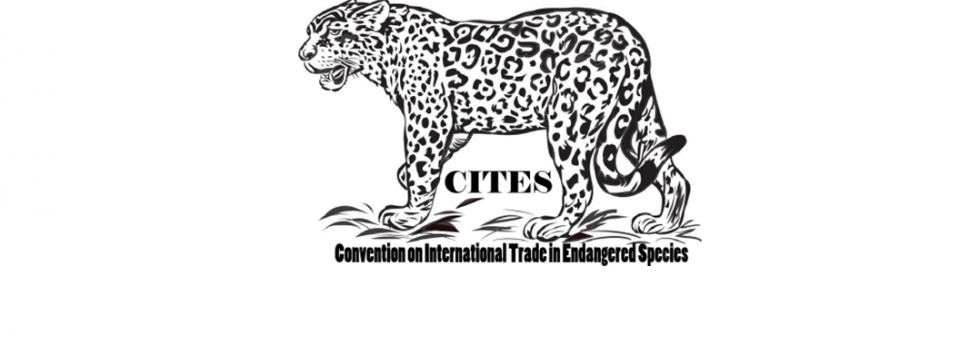CITES is the Convention on International Trade in Endangered Species of Wild Fauna and Flora. It is an international agreement between governments. Its aim is to ensure that international trade in specimens of wild animals and plants does not threaten their survival.
International Affairs (Management Authority) is responsible for administering CITES for the United States. They primarily issue permits to import and export species that are protected by CITES and by various other wildlife conservation laws.
Permits are handled by permitting programs in International Affairs (Management Authority), Endangered Species, Law Enforcement, and Migratory Birds.
Endangered Species regional offices administer native endangered and threatened species permits under the Endangered Species Act (except permits for import and export).
How to obtain a permit
Wildlife and Pets
The importation of live wildlife (i.e., game animals, birds, plants) or any part or product made therefrom, and of birds' eggs, is subject to certain prohibitions, restrictions, permits and quarantine requirements of several government agencies. Imports or exports of wildlife, their parts or products must be declared at designated ports of the U.S. Fish and Wildlife Service, unless an exception is granted prior to the time of import or export. The Assistant Regional Director of Law Enforcement for the region in which the import or export will take place should be contacted for additional information or to request an exception to designated port permit.
Any commercial importer or exporter (with some exceptions) importing or exporting wildlife must obtain a license from the Fish and Wildlife Service. Applications and further information may be obtained from the Fish and Wildlife Service, Assistant Regional Director for Law Enforcement, for the region in which the importer or exporter is located.
Endangered species of wildlife and certain species of animals and birds are generally prohibited entry into the United States and may be imported or exported only under a permit granted by the U.S. Fish and Wildlife Service. Specific information concerning permit requirements should be obtained from the Fish and Wildlife Service, Office of Management Authority, 4401 North Fairfax Drive, Arlington, VA 22203, or by calling 1.800.358.2104.
Antique articles (at least 100 years old) may be exempt from certain requirements of the U.S. Endangered Species Act. The Fish and Wildlife Service, Office of Management Authority, should be contacted for details.
The taking and importation of marine mammals and their products are subject to the requirements of the Marine Mammal Protection Act (MMPA) of 1972, as amended in 1994. The National Marine Fisheries Service (NMFS) and the Fish and Wildlife Service have jurisdiction under the MMPA for certain species and import activities. Additional requirements of the U.S. Endangered Species Act and the Convention on International Trade in Endangered Species (CITES) may apply. Prior to importing, both agencies should be contacted to learn the exact import requirements. Other NMFS import requirements may also apply for certain species covered by the International Commission for the Conservation of Atlantic Tunas, e.g., Atlantic bluefin tuna.
Certain mammals, birds, reptiles, amphibians, fish, snails, clams, insects, crustaceans, mollusks, other invertebrates and plants may be prohibited entry without the prior issuance of a permit either from the foreign wildlife authority or from the Fish and Wildlife Service, Office of Management Authority.
The importation into the United States of any wildlife, their parts or products is prohibited if the wildlife was captured, taken, shipped, or possessed contrary to the laws of the foreign country.
The importation of feathers or skins of any bird, except for scientific and educational purposes, is prohibited, except for the species noted in this paragraph. This prohibition does not apply to fully manufactured artificial flies used for fishing or to personally taken, noncommercial game birds. Feathers or skins of the following species are permitted entry: chickens, turkeys, guinea fowl, geese, ducks, pigeons, ostriches, rheas, English ring necked pheasants, and pea fowl not taken from the wild.
On October 23, 1992, the Wild Bird Conservation Act became effective. This act focuses on live bird species listed in the Appendices to the Convention on International Trade in Endangered Species (CITES). Now, if you import live birds, you must meet the requirements of this law in addition to existing requirements of CITES, the Endangered Species Act, the Migratory Bird Treaty Act, or other applicable regulations. Import permits must be obtained from the Fish and Wildlife Service, Office of Management Authority.
Live birds, their parts and products that are protected under the Migratory Bird Treaty Act may be imported into the United States for scientific purposes or certain propagating purposes only under permits issued by the Fish and Wildlife Service, Office of Migratory Birds, located in the region where the importation will occur or where the importer resides.
Imports of birds (pets, migratory birds, falcons) are subject to the quarantine requirements of the USDA and Public Health Service. Quarantine space must be reserved in advance of import. Prior to export, health certificates must be obtained. Inquiries should be addressed to the appropriate agency.
On June 9, 1989, the U.S. Fish and Wildlife Service announced a ban on the importation of most African elephant ivory and any products made from it. The ban covers all commercial and noncommercial shipments, including personal baggage accompanying a tourist. There are limited exceptions for antiques, trophies, and personal household effects. For further information, contact the U.S. Fish and Wildlife Service, Office of Management Authority, 4401 N. Fairfax Drive, Arlington, VA 22203, Tel. 1.800.358.2104.

